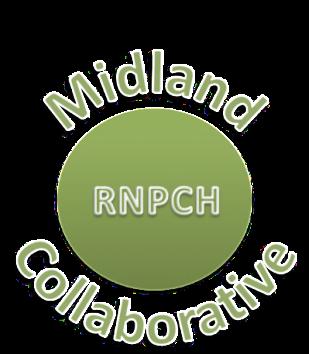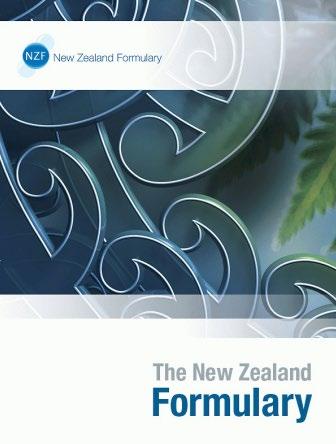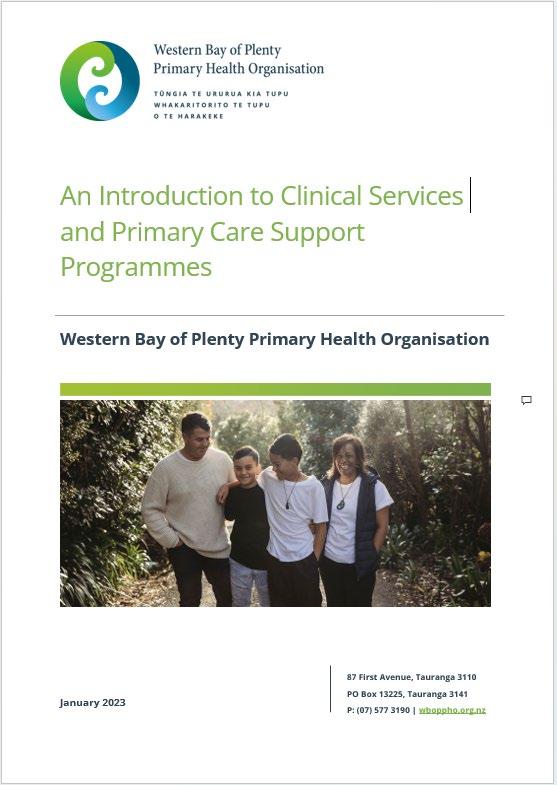Practice Managers Meeting
1st March 2023



1st March 2023


Karakia Timatanga (opening)
Whakataka te hau ki te uru


Whakataka te hau ki te tonga

Kia mākinakina ki uta
Kia mātaratara ki tai
E hī ake ana te atakura
He tio, he huka, he hau hū
Tīhei mauri ora!
https://www.otago.ac.nz/m aori/world/te-reo-maori/karakia-prayers/
https://www.youtube.com/watch?v=_uQqIGt3H2w


1. Welcome and Karakia
2. PHO CEO & Board Updates: Lindsey Webber
3. Practice Manager Items:
• Signatures on Enrolment Forms: Papamoa Pines


• PM Meeting Format – Zoom: Gate Pa
4. Network Services Updates:
• Vensa Utilisation: Phil Back
• Cervical Screening Training Courses 2023: Emma Skellern
• Sterilization Training – EOI: Emma Skellern
• Dermoscopy – Practice Coverage: Laura Penny
5. Nurse Prescribing Update: Donna Hardie
6. Diversifying a GP Workforce - Primary Care Practice Assistant (PCPA): Wendy Horo-Gregory
7. New Practice Staff – PHO Onboarding Process/Document: Laura Penny 8. Open Forum Session





Signatures on Enrolment Forms

PM Meeting Format – Zoom








Venepuncture Training – In Progress
Cervical Screening Training Courses 2023
Sterilization Course – EOI
Dermoscopy Training - Stocktake
HR Training Topics - (future sessions)



Midland RNPCH: a collaboration of 5 Midland ( Formally) DHBs & 8 Midland PHOs


RNPCH Nurse Leads: Facilitators of the programme & assessors of RNPCH portfolios
Nurse Practitioner-led teaching

Portfolio Assessors – Facilitators, NP & RN prescribers (PG Dip prescribers)

Nurse Practitioner:
Authorised prescriber
Authorised prescriber: able to prescribe any prescription medicine
Designated Registered Nurse prescribing in primary health & specialty teams
Designated prescriber: able to prescribe from a schedule of common prescription medicines
Designated Registered Nurse prescribing in community health
Designated prescriber: able to prescribe from a limited schedule of prescription & over the counter medicines
Scope of practice:
Able to independently assess, diagnose and treat a range of conditions for a population group in an area of practice. May work autonomously or within a health care organisation. Consults with health professional colleagues
Additional Qualification
Clinical Master’s degree in nursing.
Scope of Practice
Must work in a collaborative team with an authorised prescriber available for consultation. Able to diagnose and treat common conditions (e.g. asthma, diabetes, hypertension) within a collaborative team.

Additional Qualification
Scope of practice: Must be credentialed on a recertification programme for registered nurse prescribing in community health. Uses clinical pathways/ guidelines to treat a small number of conditions for normally healthy people
Additional Qualification
Post Graduate Diploma in registered nurse prescribing for long term and common conditions
Recertification programme including education, supervision in practice, and credentialing (= to level 7 qualification) not = to a PG qualification









A minimum of 3 years clinical experience with at least 1 year in the area of prescribing practice

Current Annual Practising Certificate
Compliance with Standing Order requirements/use of Standing Orders/demonstration of assessment using best practice guidelines
(NCNZ 2018)
Virtual platform x 6 self-directed learning modules: Ko Awatea
Certificate of successful completion of modules & final quiz
Virtual teaching: seven 2 ½ hour sessions: facilitated by leads, taught by NP volunteers
Supervision by Authorised Prescriber during programme (over 6-12 months)
Completion of RNPCH Portfolio:

• Learning log- 12 hours (min.)supervision
• Case reviews (min.10)
• Case studies (min.2)
• Evidence of meeting x 11 RNPCH competencies, & sign-off by supervisor
RNPCH Portfolio – assessed by Facilitators & Assessors (NP, Prescribers)
NCNZ recertification – 3 years

May 2023 Intake.
May 10th - Pre-course session


May 17th Module learning begins
Zoom session completed 28th
June







Enhancing the Health Care Home Model of Care – Sustainability Domain
Service Element 6 – The practice develops broader team roles through training with a focus on Te Tiriti o Waitangi and cultural competency to enable GPs, Nurses and other clinicians to consistently work at the top of their scope, and expand their services to patients.
Characteristic 6.4 – Extended Practice Team
• An aging population
• An aging workforce
• People living longer with more complex health needs
• Greater demand for more complex health care
• The rising cost of providing health services
• Hospitals are becoming unaffordable given the growing trends
• Literature review and research
• Collective korero with team members
• Nurse educators and leaders – DHB and Tertiary institutes
• Service providers with non-regulated health workers
• Practice Managers
• Nursing Council of New Zealand
• A body of evidence that showed the value of unregulated health workers in the workplace
• Non regulated health roles already existed in the sector – Community Health Nurses
• WINTEC / Career Force had an NZQA level 4 papers already in place – Curricula Content
• There were nursing/employer considerations – Direction and Delegation
• Socialisation of the proposed role and utilising feedback to inform the development of resources
• It was agreed that resource development should be Network / stakeholder informed for both structure/process
Resource development included:
• An Education Pathway (Clinical training and Development Workbook)
• A PCPA position description
• A modified Direction and Delegation learning module in collaboration with the Professional Development Unit at Capital and Coast DHB
• A Direction and Delegation of Care Policy
• The planning of a Peer Group to inform ongoing PCPA Development – to roll out once we had sufficient numbers
Creation of workplace capacity – clinicians
Having the right people in the right role with the right skills – cost implications
Improved access to care
A better patient experience of care
Funded capability development opportunity
Potential growth role for incumbent admin staff
Start with the willing to test the Framework – review and amend model
Seek out team champions/early adopters of change
Identify people of influence to socialise the role to the wider team
Make a plan – think about the how.
Be clear about the purpose of the role within the team
What will their/your integration needs be?
Align the job description to reflect the activities – these can be admin/clinical or clinical
Is the team aware of Direction and Delegation responsibilities?
Review the Training and Development Workbook, does it reflect the needs of your practice?
Inhouse PCPA training OR working toward OR completed a relevant NZQA qualification.
Tasks are substantially outside of the initial training. Qualified at least 6 months.
Tasks are substantially outside of the initial training. Qualified at least 12 months.
Tasks are substantially outside of the initial training. Qualified at least 18 months.
Understanding the PCPA role within the broader team
Demonstrated competency in PCPA level
1 tasks as per competency based skills list for a period of no less than 3 months
Demonstrated competency in PCPA level
2 tasks as per competency based skills list for a period of no less than 3 months
Demonstrated competency in PCPA level
3 tasks as per competency based skills list for a period of no less than 3 months
Understanding roles within the team
Has completed at least 6 skills training activities from L2 that support clinical activity.
Has completed at least 6 skills training activities from L3 that support clinical activity.
Complete at least four L4 skills training activities that focus on clinical support lead activity, e.g. facilitation, patient education, health promotion activity
Orientation to day to day practice activities
Maintained competency in L2 skills for a period of no less than 3 months
Maintained competency in L3 skills for a period of no less than 3 months
Demonstrated competency in chosen L4 skills is monitored via RN mentoring and the practice annual appraisal process.
Consolidate learning by linking theory to practice under guidance of RN
Demonstrates competency in PCPA level
1 tasks as per competency based skills list
Consolidate learning by linking theory to practice under guidance of RN
Demonstrates competency in PCPA level
1 tasks as per competency based skills list
Demonstrates competency in PCPA level
2 tasks as per competency based skills list
Competency - based training can be internal / external. Evidence of the training record should be signed off by a designated trainer and should be a clinician for all clinical activity. Ongoing monitoring of competency from L4 onwards can be managed via the practice annual appraisal proces. s
• Shared learning and development.
• The ongoing development of the PCPA role in General Practice.
• Development opportunities for PCPAs for the purpose of improving a patient/whānau experience of care.
A team is not a group of people who work together.
A team is a group of people who trust each other.
Simon Sinek




PHO support to supplement existing practice onboarding process
To reduce pressure on in-practice training around PHO Processes & Topics
Aimed at staff who are new to the: organisation/ region/ healthcare sector
Content can be adapted to be delivered to: Admin, Clinical, Managers
Guidance Document & Links Supported with an in-person practice visit with individual/group
Please take 5 minutes to consider if and how this may be helpful to you...
1. Is this something you’d like our support with?
2. What is the most useful support we could provide during onboarding of new staff?
What Topics would you like covered?
Please consider topics for Admin, Clinical and Managerial Staff









Kia tau
Karakia Whakamutunga (closing)


Kia tau
Kia tātou katoa
Te āio, te aroha me te marutau

Tīhei Mauri Ora
May peace, love and safety
Be upon us all Let there be life

